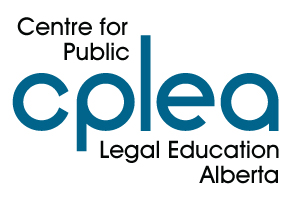Alberta Family Mediation Society (AFMS) advocates resolution of family conflict through the use of mediation by qualified professionals. AFMS offers a family-centered conflict resolution process in which an impartial third party (the mediator) helps the participants in negotiating a consensual, informed and fair agreement.
In this section, you will find resources that may assist children and teens who are going through family breakdown. Information about child protection services can also be found here.
The resources on this page were hand-picked by the Centre for Public Legal Education Alberta's staff as a good place to start. For resources about other topics related to children and teens:
- See the following site sections: Parents, Youth, Teachers and Students
- See the list of all Legal Topics
See also our FAQs on Youth and the Law. Topic areas include: school, work, finance and legal, family, health and medical, and recreational activities. Check them out!
CPLEA Suggested Resources
Not sure where to begin finding answers to your questions. Get started with our suggested resources. See additional resources below for more information.
Alberta Resources
Catholic Social Services is a multi-function social service agency that serves people of all faiths and cultures throughout central Alberta. Founded in 1961, the agency has grown to deliver more than 100 programs.CSS is divided into Service and Program areas offered in five distinct Regions throughout central and northeast Alberta. Major Service areas include: Children, Family, and Community Service,Community Outreach and Disability Service, Immigration and Settlement Service, and Substance Abuse and Corrections Service.
This section of the Government of Alberta: Children and Families website offers services, supports and resources to protect children and youth from harmful situations.
A series of 4 videos which provide information on children at risk and child apprehension. (family enhancement agreement, apprehension, child abuse complaint in Alberta, and biological parents and apprehension)
This booklet provides information on the Alberta Child, Youth and Family Enhancement Act and explains what happens when someone calls Child and Family Services on their family.
This online resource is from the Student Legal Services of Edmonton. Includes information about: What is the Child, Youth and Family Enhancement Act?; General Information; Appeals; Frequently Asked Questions. This resource is also available for download as a PDF.
This series of plain language resources addresses the needs of individuals involved in the child welfare system. It includes a visual, low literacy guide to the child welfare court process as well as several “need to know” fact sheets. This special project was made possible by funding from the Alberta Law Foundation.
- Becoming a Private Guardian
- I Do Not Agree with a Decision Made by Children’s Services
- I Have Been Contacted by Children’s Service
- My Child is Abusing Drugs… What Can I Do?
- Someone is Trying to Become a Guardian of my Child
- Court Seating Chart – Tips for CYFEA Hearings
- What Happens if a Child is Apprehended?
- Parent or Guardian?
For a listing of all CPLEA family law publications see: www.cplea.ca/publications/family-law
This website provides age-appropriate information to help kids, teens and parents deal with a family break up. Select jurisdiction (Alberta) from the drop down menu. The website was produced by the Justice Education Society in collaboration with Centre for Public Legal Education, Alberta.
These guidelines support the creation of welcoming, caring, respectful and safe learning environments that foster diversity and nurture a sense of belonging and a positive sense of self . Their purpose is to enable school authorities to use best practices in creating and supporting learning environments that respect diverse sexual orientations, gender identities and gender expressions. (January 2016)
This card, produced by BearPaw Legal provides information for students and parents on the School Act relating to their rights related to atending school in Alberta, as well as suspension and expulsion from school. See also their video that helps parents through a suspension or expulsion in Alberta schools.http://www.bearpaweducation.ca/videos/suspensions-and-expulsions-school-alberta
The Office of the Child and Youth Advocate (OCYA) is an independent office of the Legislative Assembly of Alberta, mandated to work with vulnerable young people.
This includes young people receiving or attempting to access services under the Child, Youth and Family Enhancement Act and the Protection of Sexually Exploited Children Act; or who are involved with the youth justice system.
This activity sheet is a twist on the classic children’s game that helps players learn how to make smart privacy choices by climbing up a ladder when they make a good decision or sliding down a snake because they have shared a password with a friend, for example.
This website has guides to separation and divorce for kids, for teens, and for parents. The information in the guides for kids and teens is delivered by drawn characters and the content is spoken and written in easily understood language. For parents, in addition to the guide, there are two online courses, Parenting After Separation, and Parenting After Separation: Finances. The kids' and teens' guides are also available in French.
Note: This website has been created by a British Columbia organization, but, apart from some of the contacts listed, the information presented applies across Canada.
Canada/Federal
This booklet is designed to give girls in Canada information about their rights and responsibilities as they relate to safety.
This brochure is designed as a resource to provide you with the information you need about cannabis along with some effective tools to help you set the stage for a conversation about cannabis and engage in productive discussions with your teen about cannabis and other substance use. The brochure was produced by Drug Free Kids Canada, in collaboration with Health Canada and the Canadian Centre on Substance Use and Addiction,
This guide was design for parents to prepare them for the conversations they may need to have with their kids when they first start using digital devices, as they grow and their online activities change, and when things go wrong. The guide is divided into three sections that each deal with a different aspect of digital citizenship: Respect People's Feelings, to Respect Privacy and to Respect Property online.
This online version of a booklet from the Department of Justice Canada can help children between the ages of nine and twelve to learn about family law, and can also help them realize it's normal for them to have an emotional response to their parents' separation. It is also available to download as a PDF.








Follow CPLEA